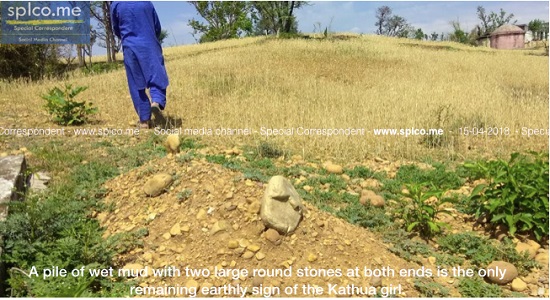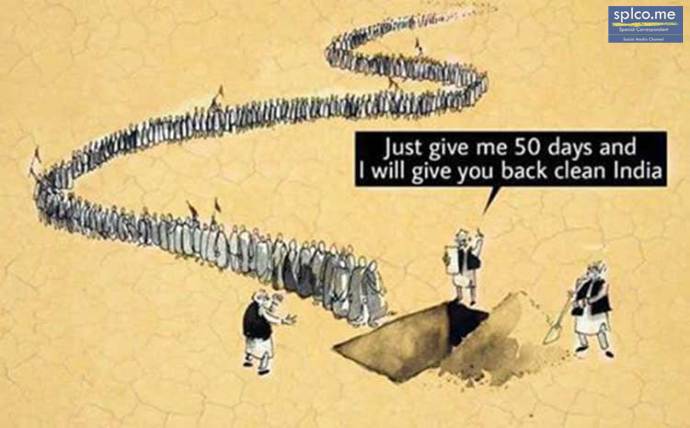A long walk up a treacherous hill nearly 8km from Kathua’s Rasana village leads to an acre of golden wheat fields. In one corner of the fields lies a grave that of the eight-year-old girl who was raped and killed in the village in January.

The girl’s five-foot-long grave is distinct from that of her four distant relatives who are buried nearby it is yet to be concretised. A pile of wet mud with two large round stones at both ends is the only remaining earthly sign of the girl.
“As per our tradition, we do not immediately concretise the grave. We will do it when her parents return from their annual visit to the mountains with their cattle,” said a distant relative of the girl who owns the land.
When her body was discovered on January 17, her foster father, who had adopted her when she was a toddler, wanted to bury her on a piece of land in Rasana.
It was the same piece of land where his three children and mother were buried after they were killed in a road accident a decade ago.
But Rasana villagers opposed the burial, saying the land did not belong to the family from the Muslim nomadic tribe of the Bakarwals.
“It was around 6pm and we were half-way into digging the ground when the villagers arrived at the scene and refused to let us go ahead. They produced documents to claim that the land did not belong to us,” said the girl’s biological grandmother.
According to the relative who later offered his land for the burial, the girl’s foster parents had purchased the property from a Hindu family over a decade ago. “But they did not go through the documentation process properly. So, the villagers found an opportunity to get back at us,” said the relative.
The Rasana Hindus, however, said the property never belonged to the girl’s family and they had been burying their dead illegally there all these years.
“The Bakarwals want to take over our land one by one. So, we couldn’t allow it. But it was us who suggested the alternative option for the burial” said Rohit Khajuria, a villager.
In the biting winter of January, the girl’s family carried her body to Kanah village home to a dozen Bakarwal families. With scores of people in attendance, the body was carried up the mountain in the dark before the ground was dug and the child was buried.
“The girl’s foster parents would just not leave the spot despite the cold. The couple stayed there until 3am before we could move them to a room,” said the relative.
Over the next three months, before the girl’s foster parents moved to the mountains, her mother would visit her grave every two-three days. “She would just sit there and cry for long hours. She would return to her home only after persuasion,” said the relative.
“How much land would the girl’s body occupy? We had in our arms a child who was raped and killed. The villagers could have shown a bigger heart at such a time,” said the girl’s biological grandfather.














